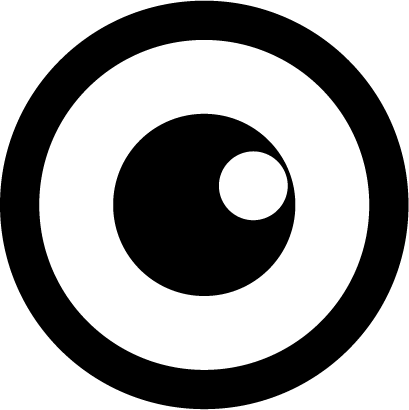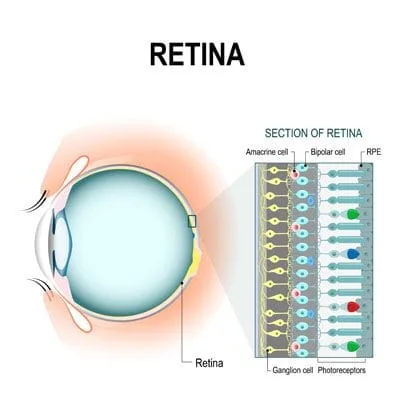Our ophthalmologist office near San Diego is available for any retinal issues.
Your retina is at the back of your eye and receives light that passes through your lens. It's responsible for converting that light into readable signals for your brain. Unfortunately, if you have a retinal issue, you may experience floaters, blurred or distorted vision, or even a loss of vision. Fortunately, Nathan Anderson can diagnose and treat problems with your retina.
General Information About Retinal Issues
Issues with your retina may affect your side vision and cause visual disturbances. For some individuals, a significant amount of vision loss is possible.
The problem may stem from a tear in your retina. When this occurs, the vitreous – a gel-like substance – shrinks. It tugs on the tissue in your retina and can damage it.
Your retina may detach. When the retina lifts away from the underlying tissue, you may experience tunnel vision and visual disturbances. Unfortunately, if you don't receive treatment soon enough, you could have permanent vision loss.
Other possible issues with your retina include the following:
- Macular degeneration
- Macular hole
- Epiretinal membrane
- Diabetic retinopathy
- Retinitis pigmentosa
What to Expect During Your Appointment for Retinal Issues
The first part of the exam consists of Anderson asking you to complete a full medical history report, which inquires about any eye problems or other health problems you have. Then, you'll undergo an examination. Your Anderson will ask about any recent eye problems you've had.
Anderson will perform a slit-lamp exam, which utilizes light and a low-powered microscope. Your practitioner looks inside of your eye to look for any signs of tears, detachment, or other issues with your retina.
Further testing may be necessary. For instance, Anderson may use an Amsler grid to access your peripheral vision. You'll need to identify if any of the lines on the grid appear distorted, broken, or faded.
An optical coherence tomography test may be used to capture an image of your retina. This particular test looks for holes and swelling in your macula.
Your Anderson might use the following to further assess your retina:
- Fluorescein angiography
- Fundus autofluorescence
- Indocyanine green angiography
Treatment for Retinal Issues
Treatment for your retinal problems may include prescription eyewear, a prescription magnifier, and patient education about methods that can optimize your vision. One possible treatment consisting of Anderson injecting gas or air into your eye. This is an effective treatment for retinal detachment. Another option is to scatter laser photocoagulation, which shrinks abnormal blood vessels in patients with wet macular degeneration. Anderson may refer you to a surgeon, depending on your issue.
Fortunately, most treatments are non-aggressive. Many conditions are manageable, especially when you seek out immediate medical attention.
For more information about retinal issues, contact Ophthalmology Demo Account at 800-462-8749.

